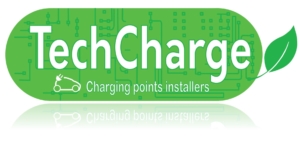The charging station
How long does it take to recharge the battery?
> The theoretical charging time is directly related to the power of the charging station. The charging power is the product of the current (in Amps) and the charging voltage (in Volts). A 16 amp single phase (230 volts) charging point will give a charging power of 3.7kW.
Which charging point should I choose?
> There are different models of plugs and charging stations. The main differentiating factor is the charging power. But the choice of model must above all be made according to your vehicle and your use (see vehicle below)
How do you choose quality equipment?
> You can rely on several criteria such as resistance indices, the manufacturer’s reputation and material guarantees. A charging station must be weatherproof (IP54 protection index) and shockproof (IK10 resistance index). We install charging stations from major French and Spanish manufacturers of electrical equipment. Their extensive expertise in the electrical industry ensures the reliability and durability of the recharging solutions.
What is the best time to recharge your vehicle?
> Recharging at home at night allows you to benefit from the “off-peak” electricity rate, which is lower than during the day. This is the best way to save money with electricity.
What are the other advantages of a charging station?
> Faster charging: You can charge your vehicle much faster, up to twice as fast in some cases!
Is it easier to manage the charging yourself?
> Ease of use: you don’t have to keep picking up and putting away the cable that came with your vehicle
Is it safer to own a charging station at home?
> It is safer: the charger is installed on a dedicated electrical circuit. No more risks of overvoltage and overheating!
Smartphone application, meter reading, secure access by key or badge, etc.
What questions should be asked before starting work?
> Is normal, semi-fast or fast charging suitable for my electric vehicle? What are the different electrical configurations? 230 or 400V? Single or three-phase? What is the power of your connection (usually 40A or 10kVA for private customers)? Is there a ground wire?
Does the terminal monopolise a lot of power?
> Yes. Make sure that the power of your installation is sufficient to meet your domestic use AND the charging station. Your vehicle’s charging station consumes a lot of power. Allow for a comfortable margin in addition to the power needs of your charging station.

